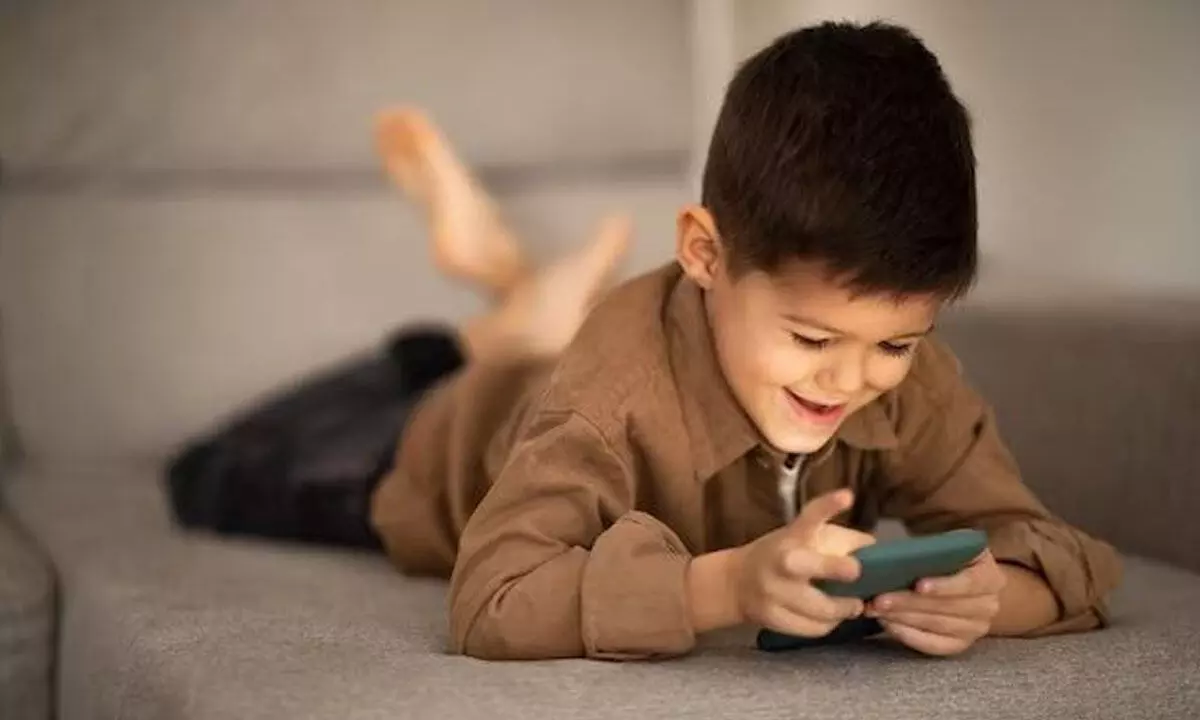Here’s how parents can help children out of gaming addiction

Here’s how parents can help children out of gaming addiction
Are you one of those parents finding it hard to pull your kid out of their gaming addiction? Instead of directly restricting them from playing, making open and healthy conversations can help you better, according to behavioural health experts.
Are you one of those parents finding it hard to pull your kid out of their gaming addiction? Instead of directly restricting them from playing, making open and healthy conversations can help you better, according to behavioural health experts.
Excessive gaming can take a toll on children’s mental and physical health, which in turn can become more stressful for parents. While setting limits is important, children must be made aware of both the health benefits of video games as well as its damages.
“Simply telling the child to not play games at all is not the solution because there are certain games that also help in developing problem solving skills and creativity. Parents need to communicate honestly and build a trust with their child to know what game they are playing,” says Harneet Kaur Kohli, Consultant - Psychologist, Manipal Hospital.
“When parents show a very disapproving reaction to gaming, children begin to hide it, resist it, and start to perceive that my parents see this wrong but I want to do it. While you allow them to play, engage with your child in healthy conversations about what the game is about and what they enjoy about it,” added Mimansa Singh Tanwar, Clinical Psychologist, Department of Mental Health and Behavioural Sciences at Fortis Healthcare.
A study of nearly 2,000 children, published in JAMA Network Open, showed that children who played video games performed better on cognitive skills tests involving impulse control and working memory compared to those who had never played.
Studies have also shown video games to positively affect the brain and help people with cognitive disabilities like autism. A recent review of 116 scientific studies, published in Frontiers in Human Neuroscience, indicated that playing video games not only changes how our brains perform but also their structure. The studies showed that video game players display improvements in several types of attention, and require less activation to stay focused on demanding tasks.
However, in gaming addicts, it caused functional and structural alterations in the neural reward system -- a group of structures associated with feeling pleasure, learning, and motivation.
“If parents find some content which may be quite aggressive, violent or showing inappropriate behaviour or language, take an educative approach where you talk about how research has been showing that what we engage in with media can have an influence on our behaviour and it is true for all of us. So let’s think critically about this,” Tanwar told.
Kohli suggested that parents must have an open communication with kids and they should have a knowledge about what games should be given to their child based on their age.
“Once communication is established, it is easy for parents to control the screen time and activity of their child. If a child is spending their entire day on mobile phones, parents have to involve them in other activities (physical activities),” she added. The doctor said that parents can also encourage children to have a physical sport and other stimulating activities based on their interests so they learn to balance between screen time and hobbies.
Moreover, Tanwar said kids sometimes use gaming as a means of coping from stress. “Be watchful of signs if your child’s preoccupation with gaming is increasing with inability to reduce their time despite multiple attempts and it is beginning to impact their emotional, social and academic functioning, seek help from a mental health professional,” she added.
The doctors also emphasised the role of schools as children spend at least 7-8 hours of their entire day at school.
“Schools must implement some educational programmes to inform children and parents about the pros and cons of mobile phones and gaming. They must involve children in these programmes in the form of physical activity so that they understand better. Informing them about the good uses will encourage them to use phones in a limited manner,” Kohli told.














